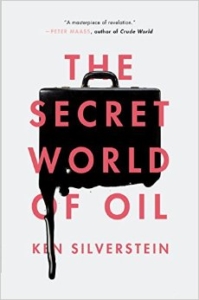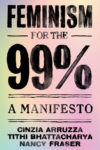It is no secret that the world of oil — at least the producing end — is in turmoil. A price collapse that began last summer has marred major fossil fuel companies and contributed to the budgetary problems of an array of petro-states from Venezuela to Nigeria. Readings of The Secret World of Oil, by pugnacious investigative journalist Ken Silverstein, will inevitably be colored by the contemporaneous market tumult.
In April, the IMF confirmed that, unlike the largely demand-driven oil price crash of late 2008, the present drop is the result of oversupply along with weakening demand. Therefore, a complete understanding of this downturn depends upon a grasp of the techniques employed by producers to increase oil output. Here, Silverstein’s book is a helpful guide.
At its core, The Secret World of Oil is about the beneficiaries of the global oil economy who “smooth the workings of the energy business” by circumventing political barriers to production. Arun Gupta, editor of the Indypendent magazine, recently made the insightful, albeit exaggerated, observation that, “When [oil] shortfalls occur these days they are political, not geological.” The same might be said of gluts. Whether exploiting loopholes in the 1977 Foreign Corrupt Practices Act, or boosting repressive regimes, the operatives throughout Silverstein’s book play significant roles in keeping oil flowing to consumers. Akin to newer extractive technologies employed by energy companies to prevail over difficult geology, these middlemen are not cheap. Though they “don’t generally own nor operate oil refineries or wells,” the inhabitants of Silverstein’s Secret World are compensated handsomely for their services.
Useful as the book is, it would be misleading to suggest that Silverstein intended to comment on prevailing market conditions circa 2015. After all, The Secret World of Oil was published roughly two months before the present glut began. A fair appraisal of the work will need to look beyond its relevance to the present price slump. For a clearer understanding of the role The Secret World of Oil plays within its genre readers should turn to the writings of a valued consultant for the energy industry — the author of the standard popular history of the global oil economy.
Daniel Yergin’s World of Oil
Daniel Yergin’s The Prize: The Epic Quest for Oil, Money, and Power won a Pulitzer in 1992 as US gasoline prices were in the midst of a long tumble to their lowest point in history. At 912 pages, The Prize offers readers with an expansive description of the global oil economy’s emergence from humble beginnings in mid 19th century Pennsylvania, to era-defining primacy by the time of the text’s publication. Three months after Yergin’s tome hit bookshelves President and former oilman George H.W. Bush appeared on American television sets to announce the start of Operation Desert Storm. For early admirers, like former Assistant Secretary of State Leslie Gelb, Yergin had written a volume that exceeded “the comprehensiveness and care” of its competitors. To others, the account of oil’s monumental rise was “authoritative” or simply the “best.”
The Prize is certainly a work worth reading, if for no other reason than its extraordinary, perhaps even unparalleled, breadth. The author’s sprightly, novelistic writing style illuminates the heroic ideals, tragic flaws, and minute quirks of even the most obscure wildcatters; and one completes his book with a well-grounded sense for the irregular rhythms of oil production and consumption. Nevertheless, as other reviewers have observed, the ambitious narrative is bogged down by a pernicious bias. Too often, Yergin downplays the costs the modern fossil fuel economy and the dark side of the oil industry.
When I occasionally ponder the book no superlative immediately comes to mind. Even the word oil is conjured up less readily than the unusual term I instinctively drift towards: countercoup.
Countercoup is the euphemism Yergin finally assigns to the military overthrow of democratically elected Iranian Prime Minister Mohammed Mossadegh in 1953. Mossadegh dared to nationalize his country’s oil industry and, as a consequence, Shah Mohamed Reza Pahlavi supplanted the populist head of state with the support of the United States, Britain, and the Anglo-Persian Oil Company — a forerunner to BP.
The notorious putsch, which permanently ended democratic rule in Iran, is widely understood to have been one of the great missteps of the Cold War. Yet, in Yergin’s view the policymakers behind the coup were as levelheaded as Mossadegh was manic. No comment is made on the irony of Secretary of State John Foster Dulles’ reasoning, “that Iran would soon be a dictatorship under Mossadegh.” To Yergin, the prime minister’s “tilt towards Moscow” was “ominous” and only the “naïve” could deny the Soviet Union’s designs on Iran. In the end, the infamous episode of official rapacity is made palatable with the lax remark that, “What the CIA and MI6 did was to play the facilitating role… during uncertain and fluid times.”
This jarring fragment exemplifies the broader pattern of partiality in the energy expert’s works. For emphasis, take note of two more attempts at exculpation in Yergin’s writings:
- In the same chapter that addresses the Mossadegh coup, a 1952 Federal Trade Commission report accusing major oil companies of forming an international cartel is dismissed on the grounds that, “it generally interpreted complex events in such a way as to support its overriding thesis.”
- In a review of The Quest, the 2011 sequel to The Prize, a dismayed Bill McKibben laments Yergin’s refusal, “to come to a conclusion one way or another on the central question,” of climate change. “That’s essentially the stand of Texas governor and presidential candidate Rick Perry,” writes the renowned environmentalist.
Silverstein’s Rebuttal
Champions of the oil economy interviewed in The Secret World of Oil tend to lack democratic pretensions. Ginger Sawyer, the top energy lobbyist for the Louisiana Association of Business and Industry, boasts about her colleagues’ roles in authoring regulatory legislation. Former head of Triton Energy Jim Musselman praises the dystopian stability of brutally oppressed Equatorial Guinea. “As long as we want cheap gas, democracy can’t exist,” proclaims Ed Chow, a veteran Chevron executive.
Silverstein’s book teems with amoral and profligate characters, but it is too short and too contemporary to qualify as a full-fledged counter narrative to The Prize or The Quest. Instead, the intrepid reporter’s text should be viewed as a supplement to Yergin’s sanitized histories — a new addendum that helps to expose the ugliness of the global oil economy.
In fact, the third chapter of The Secret World of Oil directly debunks The Quest’s “conventional view” that oil traders simply “make money by leveraging information to buy cheap and sell high.” To the contrary, successful individuals in this line of work observe that, “Political connections [are] even more vital than expertise.” Such connections are often forged through illegality. Think: Glencore’s alleged payment of $3,222,780 in illegal surcharges to Iraq during the oil-for-food scandal, or sanctions-busting a la Mark Rich.
Of course, traders are not unique in their willingness to bend rules. Again and again, international industry participants throughout the book subvert political processes and economic outcomes. Oil itself provokes a set of misbehaviors, suggests Silverstein. Though resource curse arguments are hardly original, the iteration showcased in the pages of The Secret World of Oil is more globalized than usual. Corruption is palpable not just in exporting countries, but also in office buildings and villas located across Geneva, London, Washington DC, and Malibu. Readers learn that the US energy sector is the top violator of the Foreign Corrupt Practices Act, and that only a handful of other industries outspend oil and gas companies on domestic lobbying efforts.
Unlike peers, such as Michael Klare in Blood and Oil and Peter Maas in Crude World, Silverstein is hardly preoccupied with geopolitics. The misdeeds of industry players are his primary concern, and his character roster reflects that fact. The Secret World of Oil is organized as a series of chapter-length profiles. Ely Calil, Teodorin Obiang, Glencore, Bretton Sciaroni, an out-of-office Tony Blair, and Neil Bush are each depicted as archetypes of specific intermediary agents within the oil business: fixers, dictators, traders, gatekeepers, flacks, and hustlers respectively. Interviews with current and former corporate officials, government figures, and academics together with court documents, private memos, and WikiLeaks cables are the building blocks of the book.
Silverstein’s penultimate and longest chapter pleasantly deviates from this formula. Instead of a profile, he offers a rich survey of an ongoing political scuffle over oil industry pollution in Louisiana. With regulatory agencies captured by Big Oil and its lobbyists, entrepreneurial trial lawyers and wealthy landowners turn to Louisiana’s courts to hold companies liable for dumping waste into unsealed pits throughout the state.
Political battle lines are drawn atypically in oil-rich Louisiana. The role of environmentalists in this “industry versus industry” struggle is depressingly marginal. While Republican Governor and presidential candidate Bobby Jindal refuses to take a side in the legal disputes, a prominent Democratic legislator argues, “Look, when a landowner leases his land for oil exploration, he’s pretty much giving the company permission to pillage it.”
In the end, Silverstein lucidly underscores the high stakes of the seemingly regional affair. The outcomes of such Louisianan skirmishes are particularly weighty because the state’s politicians and business figures have repeatedly led the charge on federal deregulation of the oil industry. Patiently articulated and always on-point, this chapter is exceptional.
Elsewhere Silverstein is more restless. Whereas chronology unifies the individual sections of The Prize — one event leads to another — only a general theme ties The Secret World of Oil’s disparate profiles together. As is such, Silverstein’s book reads very much like a series of articles by a reporter on a beat. There is nothing inherently wrong with disjointed storytelling. Peter Maas wrote his book on oil in a similar style to great effect. But I suspect that narrative fragmentation exacerbated Silverstein’s tendency to meander away from the topic at hand. His chapter on the pitiful Bretton Sciaroni comes to mind.
Sciaroni, a former Reaganite lawyer who became a sycophantic aide to Cambodian dictator Hun Sen in the wake of the Iran-Contra scandal, is certainly a fascinating figure. But, well crafted and researched as the 25-page profile of the tyrant’s minion is, oil and oil companies are only mentioned in seven of its sentences. I find it difficult to comprehend why a report so tangential to the world of oil was included in Silverstein’s collection.
Why We Need The Secret World of Oil
In Hassan Blasim’s The Corpse Exhibition, a fictional Iraqi, coping with his nation’s perennial violence, dubs the oil that has done so little to better the lives of his countrymen “black shit.” Juan Pablo Peréz Alfonso, the prescient Venezuelan father of OPEC, similarly denounced the illusory fossil fuel by the end of his career. He famously called it “the devil’s excrement.” I imagine that Louisianans in The Secret World of Oil, suffering as Big Oil erodes the state’s coastline and abdicates responsibility for cleaning up industrial waste, have their own fecal metaphors for the blamable resource.
Silverstein provides his greatest public service by depicting some of the troubles faced by those who reside directly above the world’s oil reserves. His descriptions of the wreckage generated by the global oil economy in the present complement climatologists’ warnings of looming catastrophe. As lowered prices threaten to deepen our fossil fuel addiction, soporific authors in the mold of Yergin are especially ill equipped to guide readers towards a future of renewable energy. Conversely, there exists a pressing need for writers, like Silverstein, with an eye for the gravity of our predicament today. After all, our predicament today is awfully grave.
In this era, some people go to war over religion. For other folks, oil will do. Last August, Charlie Rose asked Deputy Assistant Secretary of State for Iraq and Iran Brett McGurk about the threat ISIS poses to the US. The former Special Assistant to President George W. Bush was surprisingly candid in his reply. Before mentioning the danger of jihadist attacks on the US homeland or the prospect of regional Iranian hegemony, McGurk accentuated international markets’ “need for Iraqi oil.” Grim stuff.
Michael Youhana is a writer interested in US foreign policy and the Middle East. You can reach him on Twitter.
This post may contain affiliate links.








